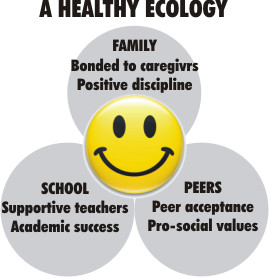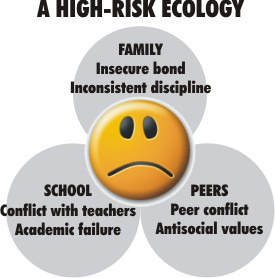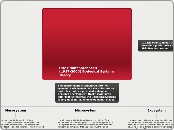Urie Bronfenbrenner's (1917-2005) Ecological Systems Theory
The environment is structured into five systems. Each system contains roles, norms and rules that can powerfully shape a person's development. Unlike Vygotsky's and Piaget's theories, the Ecological Systems theory does not have developmental stages.
Macrosystem
The macrosystem is comprised of cultural values, customs, and laws. It describes the culture in which individuals live. This includes socioeconomic status, poverty, and ethnicity.
Mesosystem
The mesosystem involves the interaction of two microsystems. It provides the connection between the structures of the child’s microsystem. The connections between a child’s teacher and his parents or his church and school would be part of the mesosystem.
Microsystem
The Microsystem is the immediate surroundings of the individual such as family, peers, school, and neighborhood. This system involves direct interactions with the child and someone or something that helps construct the social settings.
Bi-directional Influences:
At this level, relationships can impact children in two diretions. For example, a child’s parents may affect his beliefs and behavior; however, the child also affects the behavior and beliefs of the parent.


Exosystem
The exosystem defines the larger social system that is concerned with the connection between a social setting in child's microsystem where the child does not have an direct, active role. For example, a parent's workplace schedule or community-based family resources are examples.
Chronosystem
This system encompasses the dimension of time as it relates to a child’s environments. Time can refer to the patterns of environmental events and changes over the life of an individual as well as sociohistorical circumstances. These elements can be either internal (such as physiological aging of the individual) or external (i.e. death of a family member, divorce). An example of sociohistorical change in the chronosystem might be increasing opportunities for women to pursue a career.
